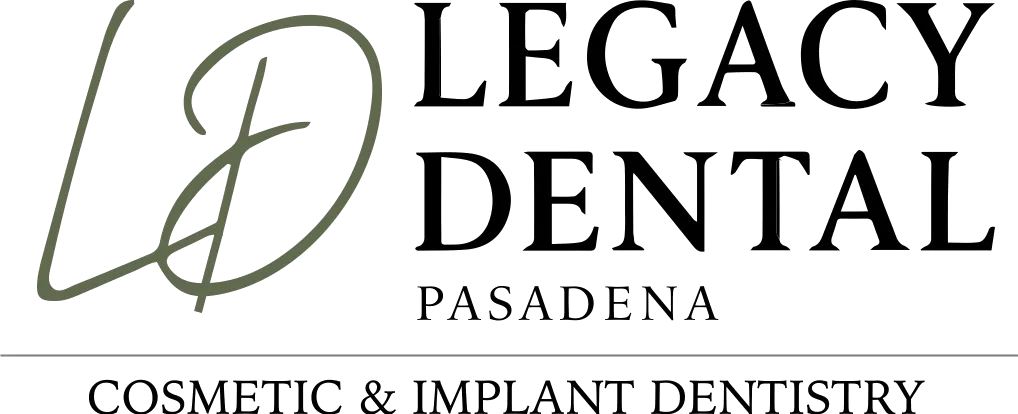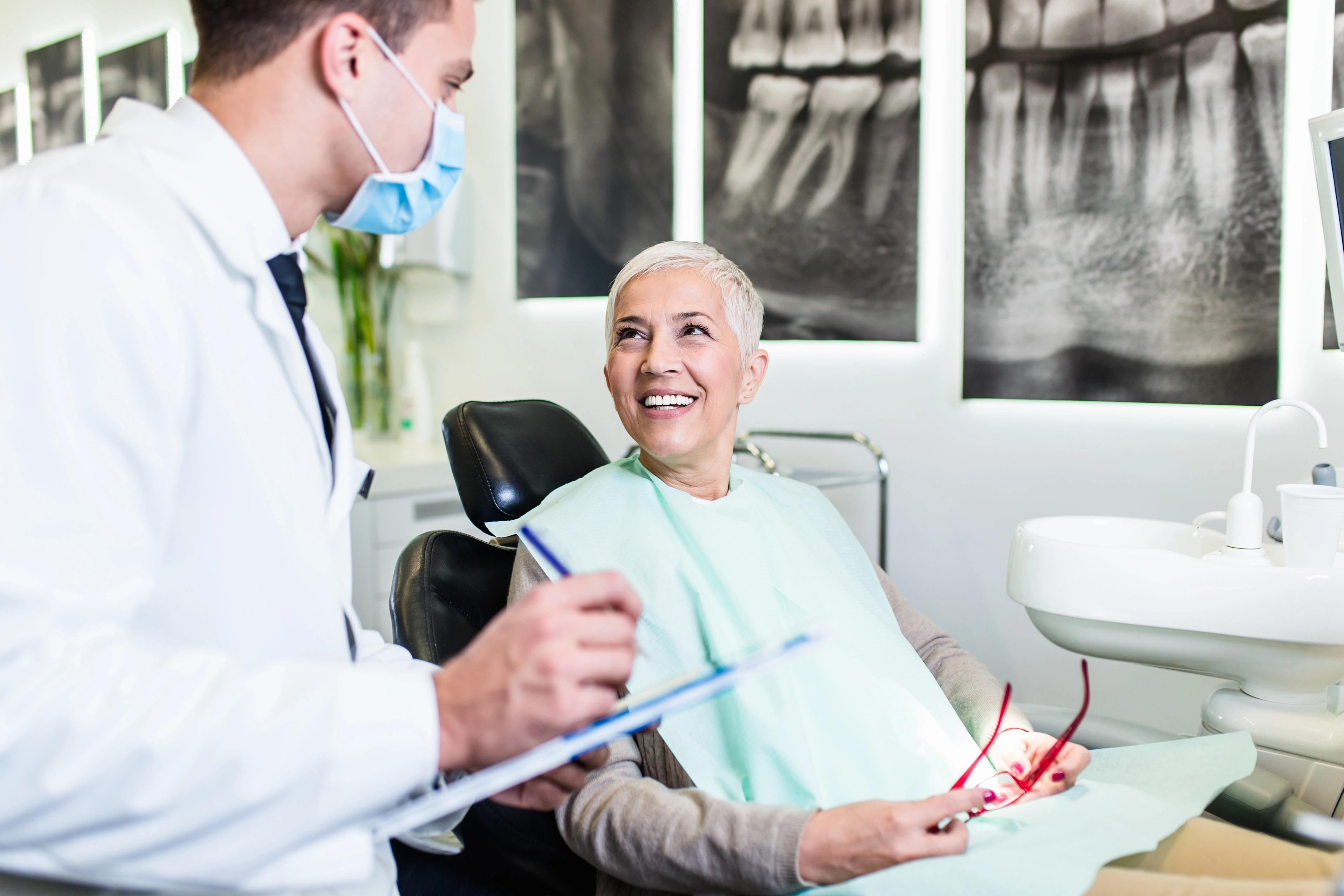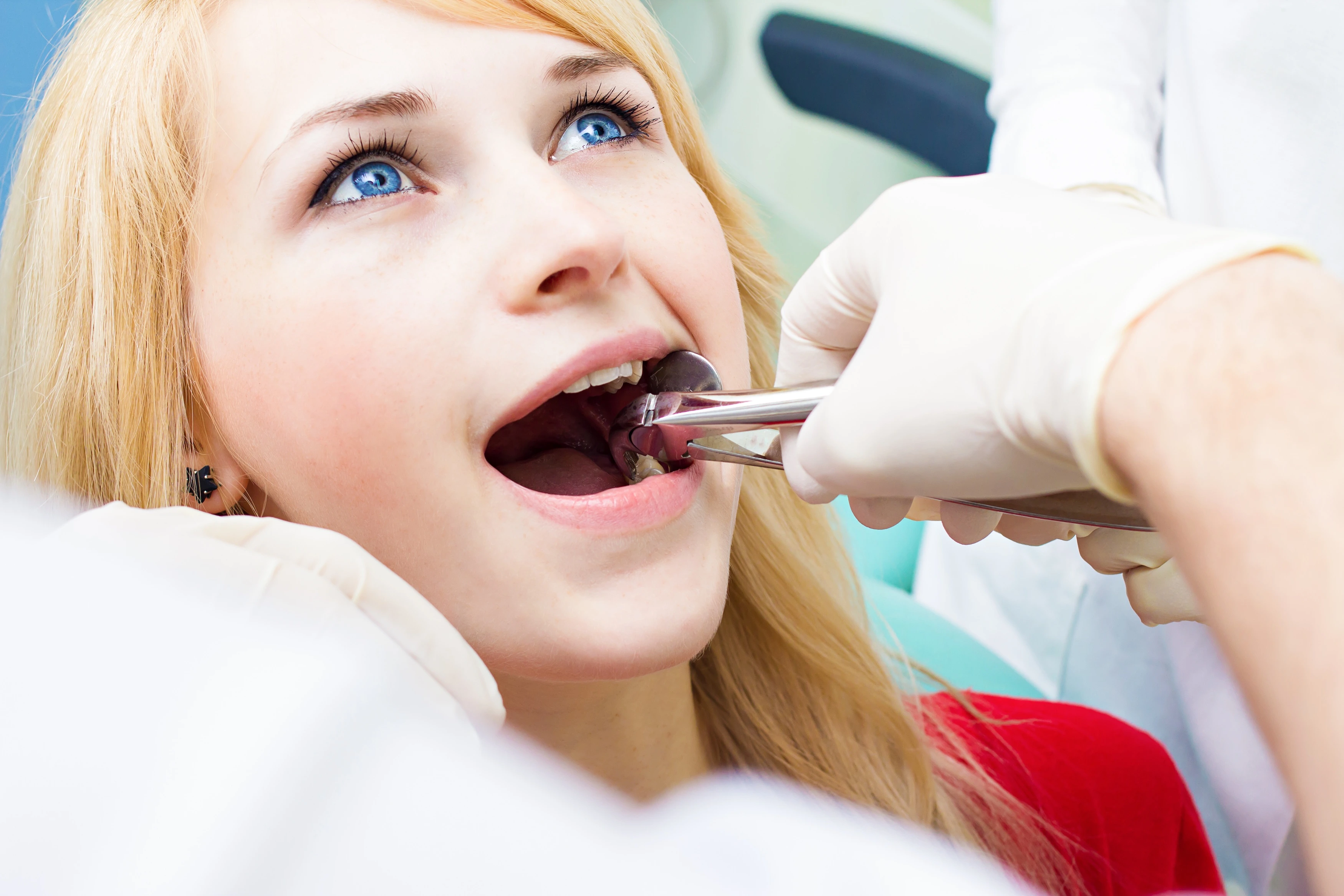Healing After Dental Implant Surgery
Getting dental implants is a life-changing step toward restoring your smile. To make sure your recovery goes smoothly, it is important to follow proper post-operative care. At Legacy Dental Pasadena, our team provides personalized guidance to help every patient heal comfortably and achieve long-lasting results.
Here is a complete overview of what to expect after your implant surgery and how to care for your mouth during the healing period.
Common Post-Operative Conditions
It is normal to experience some side effects after implant surgery as your mouth begins to heal. These reactions are temporary and usually improve within a few days.
You may notice:
- Limited mouth opening due to muscle tightness or swelling.
- Mild bruising or discoloration of the skin.
- Numbness around the corners of your mouth, lips, or chin.
- A sore throat or mild difficulty swallowing.
- Slight aching in nearby teeth.
- Dryness or chapping at the corners of your lips, which can be eased with Vaseline or Neosporin.
- A small rise in body temperature (up to 1.5 degrees above normal).
- Nausea caused by prescription medication or swallowing blood. Reducing the medication dosage or taking half a tablet may help.
- Occasionally, tiny bone fragments may work their way through the gum. These often resolve naturally, but you can return for evaluation if needed.
These are all normal responses as your body recovers. Staying hydrated, eating soft foods, and resting can help your body heal faster.
Managing Bleeding
Light bleeding or oozing is common for up to 48 hours following surgery. To manage this:
- Avoid excessive rinsing or spitting, as it can dislodge the healing clot.
- Place a piece of gauze directly over the surgical area and bite down firmly for about 15 minutes.
- Replace the gauze if needed until the bleeding stops.
- If bleeding persists, you can use a tea bag soaked in warm water. The tannins in tea help promote clotting.
If bleeding continues beyond this point or becomes heavy, contact Legacy Dental Pasadena right away for additional care.
Oral Hygiene After Surgery
You can begin brushing your teeth gently the morning after your procedure. Use a soft toothbrush and avoid brushing directly over the surgical site until the crown or final restoration is placed.
It is important to keep the surgical area clean without disturbing the healing process. Rinse your mouth three to four times a day using a warm saltwater solution (1 teaspoon of salt in an 8-ounce glass of water). This helps reduce bacteria and soothes the gums.
Flossing should be avoided around the implant site for the first two weeks after surgery. As healing progresses, your dentist will guide you on when to resume normal brushing and flossing techniques.
Caring for Removable Appliances
If you have a removable appliance such as a flipper, denture, or partial plate, keep it in your mouth continuously for the first 72 hours after surgery. This helps control swelling and allows your tissues to adapt to the new shape of your mouth.
Removing your appliance for even a short time during the first few days can lead to swelling that makes it difficult to refit. You may remove it briefly for cleaning under running water, but it should be worn as much as possible during the first three days.
Managing Discomfort and Swelling
Some swelling is expected after dental implant surgery and typically peaks around 48 hours. To reduce swelling and discomfort:
- Apply ice packs to the sides of your face for 20 minutes on and 20 minutes off during the first two days.
- Take 600 mg of ibuprofen (3 Advil or Motrin tablets) every six hours as needed for pain and inflammation.
- If you are allergic to ibuprofen or taking other medications, follow your physician’s instructions instead.
You may also take your prescribed pain medication as directed. If nausea occurs, try taking medication with food or switch to Extra Strength Tylenol every six hours. Avoid combining Tylenol with narcotic pain medications unless directed by your dentist.
Aspirin is not recommended after surgery, as it can increase bleeding.
Diet and Exercise
You can return to eating soft foods as soon as the numbness wears off, as long as you avoid chewing near the surgical site. Choose foods that are cool or lukewarm and easy to swallow.
For the first two weeks, do not chew directly over the implant area. If you have a temporary crown, avoid chewing on it until your final restoration is placed by your dentist. This typically takes about four to six months.
To minimize swelling and inflammation, avoid strenuous activity for the first three to five days following surgery. Rest as much as possible and keep your head elevated when lying down.
Foods to Avoid
- Crunchy or hard foods
- Spicy dishes
- Hot foods or beverages
- Popcorn
- Pretzels
- Alcohol
- Seeds and nuts
Recommended Soft Foods
- Yogurt and cottage cheese
- Mashed potatoes and pureed vegetables
- Applesauce, pudding, and oatmeal
- Soft scrambled eggs
- Protein shakes, smoothies, and juices
- Bananas and tofu
- Soup that is warm, not hot
Staying hydrated and eating nutritious soft foods will help speed up your recovery and support bone healing.
Important Restrictions
Avoid spitting, using a straw, or smoking for the first 24 hours after surgery. These actions create suction that can disturb the healing area and delay recovery.
If you were prescribed antibiotics or antimicrobial rinses, take them as directed to prevent infection.
Try to rest as much as possible during the first few days. Gentle movement is fine, but allow your body time to heal before returning to your regular exercise routine.
Smoking and Implant Success
Smoking will significantly reduce the success rate of implants. It can compromise the appearance of your final crown and accelerate gum recession, which may expose the implant or cause aesthetic concerns. Smoking also increases post-operative discomfort and slows healing.
For the best outcome, complete abstinence is strongly recommended for at least two weeks after surgery, and ideally, patients should quit entirely to protect their oral and overall health.
Sinus Care Instructions
Some patients may experience sinus congestion or pressure following implant surgery, particularly when implants are placed near the upper jaw. To prevent complications and ensure proper healing between the sinus and the mouth, follow these instructions carefully:
- Use a mild decongestant or antihistamine if you feel congestion or post-nasal drip.
- Do not blow your nose for two weeks after surgery.
- Do not stifle a sneeze. If you must sneeze, do so through your mouth to minimize air pressure in your sinuses.
- Take prescribed medications exactly as directed.
- Contact Legacy Dental Pasadena if you experience any unusual discomfort or have questions about your recovery.
- A mild bloody nose for the first 24 hours can be normal and is not typically a cause for concern.
Following these guidelines will help protect the surgical site and reduce the risk of complications related to the sinus area.
When to Contact Your Dentist
While mild swelling, bleeding, and tenderness are normal, call our office immediately if you experience:
- Severe or persistent pain
- Continuous bleeding
- Fever above 101°F
- Signs of infection such as swelling or discharge
- Movement or loosening of the implant
Our caring team at Legacy Dental Pasadena is here to support your recovery and ensure every step goes smoothly.
FAQ
Initial healing takes about one to two weeks, while full integration can take several months.
Yes. Mild to moderate swelling is common and should gradually improve.
Stick to soft foods like yogurt, eggs, smoothies, and soups.
Yes, but be gentle and avoid brushing directly over the surgical site at first.
Many patients return to work within one to two days, depending on comfort.
Smoking slows healing and increases the risk of implant failure.
Mild discomfort is normal and usually manageable with medication.
Severe pain, swelling that worsens, fever, or unusual discharge should be reported.
Light activity is fine after a few days, but avoid heavy exercise initially.
Do I need follow up visits after implant surgery?


